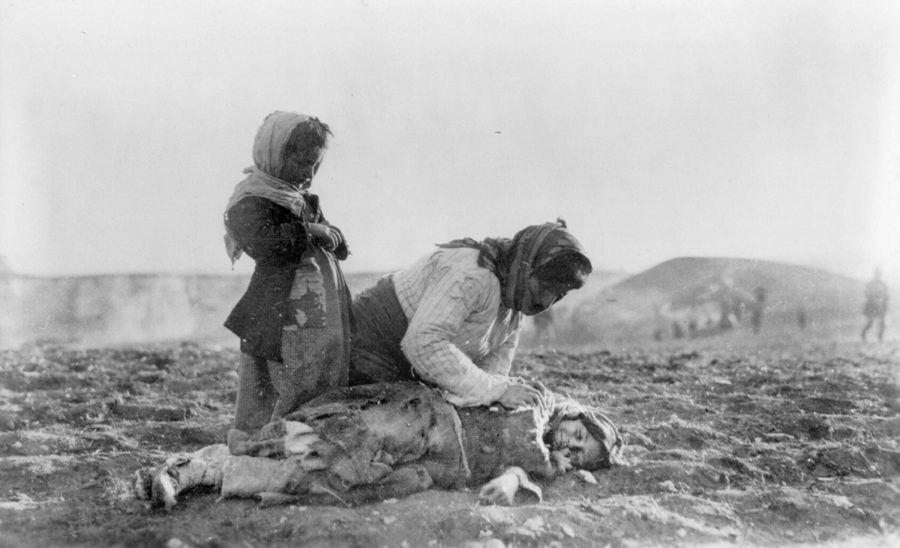Armenian Genocide marks 100th anniversary
Refugees in Syria, 1915. An Armenian child dead in the fields within sight of help and safety at Aleppo. (Library of Congress/American Committee for Relief in the Near East)
May 11, 2015
Right before World War I, there were about two million Armenians living in the Ottoman Empire. In 1915, two years after Turkey entered the war, the government began the systemic massacre and expulsion of Armenian Turks from the country. By 1922, 1.5 million Armenians were dead.
The definition of genocide is “the deliberate killing of a large group of people, especially those of a particular ethnic group or nation.” By these metrics, scholars agree that this event would be considered genocide.
However, Turkey still refuses to acknowledge the killings as genocide, instead claiming that ethnic groups fighting within the empire massacred each other.
The genocide started with the government. In 1908, The Young Turks, seized control of the weakened Ottoman Empire. Their main goal was to “Turkify” the country. The government then entered World War I in 1914 on the side of Germany.
Certain Armenians started helping the Russians, which only gave the government a reason to start the mass killings.
The Turkish government silences those who acknowledge the genocide. Novelist Elif Safak was put on trial in 2006 because a character in his book mentioned the Armenian Genocide.
In an interview with NPR, she said, “As long as Article 301 is out there, and it is misinterpreted like this, it is open to further exploitation by ultranationalists, and there will be many other cases.”
Article 301 which Safak refers to is the Turkish Penal Code, which makes “insulting the Turkish Nation” illegal. Along with Safak others have been prosecuted, including Turkish-Armenian journalist Hrant Dink, who was assassinated by Turkish nationalists in 2007.
The last stage of genocide is denial, which Turkey has been doing for the past 100 years. Allies of Turkey, including the United States, remain silent on the matter.
Earlier this year, human rights lawyer Amal Clooney represented Armenia in a case against Dogu Perincek, a Turkish politician who denied the genocide.
According to Time Magazine “The Strasbourg-based ECHR [European Court of Human rights] later agreed with Perincek that the conviction violated his freedom of expression, and now Switzerland is appealing, with Armenia’s backing as a third party.”
Clooney noted the hypocrisy of the ruling, and in her statement at court she said, “Armenia is not here to argue against freedom of expression any more than Turkey is here to defend it. This court knows very well how disgraceful Turkey’s record on freedom of expression is. You have found against the Turkish government in 224 separate cases on freedom of expression grounds.”
Only about 25 countries acknowledge the event of 1915 as genocide. Allies of Turkey, including the United States, are wary of discussing the event for fear of damaging relations.







